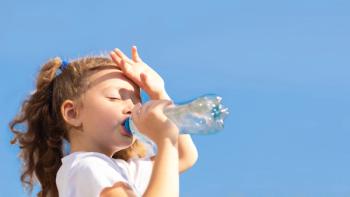
Educational Intervention Could Prompt More Pediatric HPV Vaccine Initiation
An intervention applied at family care practices shows benefit to tailoring education to both clinicians and medical assistants.
A targeted quality improvement program was associated with increased rates of healthcare providers recommending human papillomavirus (HPV) vaccination initiation to eligible children at a Utah-based family medicine health care system. The methodology may be applicable to other practices that which practice with nurse practitioners (NPs) serving a more involved role in HPV vaccine initiation.
A new poster presented at the
A team of investigators from the BYU Family Nurse Practitioner Program, led by Michael S. Robinson, DNP, FNP-C, sought to evaluate the rate of HPV vaccination among pediatric patients aged 9 – 10 years old following the application of educational interventions across a trio of Salt Lake City-based pediatric clinics. The educational intervention included a pair of 15 – 20-minute educational presentations, targeted toward healthcare providers and medical assistants, respectively.
The healthcare provider education intervention entailed evidence for delivering the first HPV vaccination to children at age 9 – 10. It also provided evidence-based responses to common questions raised around HPV vaccination.
The medical assistant education intervention additionally addressed the same evidence, as well as guidance on identifying eligible pediatric patients for vaccination and how to communicate said eligibility to healthcare providers.
The HPV vaccine initiation recommendation was updated to age 9 years old by the American Cancer Society (ACS) in 2020. What’s more, the Healthy People 2030 national strategy has set a goal to increase HPV vaccination rates from 48% to 80%. Despite these initiatives, HPV vaccination has increased by only 10% in the last 3 years.
As Robinson and colleagues noted, an optimal approach to applying better practices may be multifactorial.
“Although HPV vaccine is safe and effective, vaccine uptake can improve,” they wrote. “Nurse Practitioners must identify and implement strategies to improve HPV vaccination.”
Investigators assessed the total count of HVP 1 and 2 vaccine doses initiated in children based on age groups of 9 – 10 years old, 11 – 12 years old, and ≥13 years old, in 2022 (pre-education intervention) and 2023 (post-education).
Among children aged 9 – 10 years old, they observed a 57.3% (n = 140) increase in total HPV 1 vaccine doses provided in 2023 versus 2022. Among children aged 11 – 12 years old, the increase in HPV 1 vaccine doses was 41.7% (n = 485) and the increase in HPV 2 doses was 54.6% (n = 131) following the educational intervention.
Though the rate of annual HPV 1 vaccine doses in children aged ≥13 years old actually decreased by 5% in 2023, the team did observe an increase of HPV vaccine regimen conclusion in this age group (n = 105 [18.2%]).
In total, the educational intervention strategy was associated with 811 more HPV vaccine doses administered in 2023 versus 2022 (24.5%). Investigators additionally observed reports of increased confidence among both healthcare providers and medical assistants in initiating the HPV vaccine dose in the ACS-recommended age group following the educational intervention.
“Implementing clinic-wide educational interventions to improve HPV vaccination rates among 9-10-year-olds is successful,” Robinson and colleagues wrote. “To increase HPV vaccination rates among 9-10-year-olds, multiple strategies should be used.”
References
Robinson MS, Petersen A, Warhurst JC, Macintosh CI, et al. Increasing HPV Vaccination Rates in Your Clinic. Paper presented at: NAPNAP National Conference on Pediatric Health Care. March 13 - 16, 2024. Denver, CO.
Newsletter
Access practical, evidence-based guidance to support better care for our youngest patients. Join our email list for the latest clinical updates.







